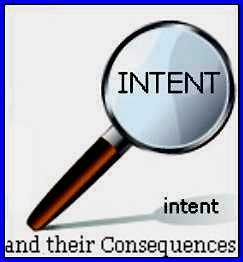
Jacobson Estate 2020 BCSC 1280 showed the court’s willingness to expand the use of section 58 WESA as a remedial tool to revive the provisions of a will that had been revoked by operation of section 56(2) WESA due to the separation of spouses.
The deceased was in a same-sex marriage like relationship for over 30 years and provided in her will of November 2014 that her surviving partner would receive the residue of her estate.
However, in June 2017 they separated as spouses, and by reason of S. 56(2) WESA, a testamentary gift to a spouse of the will maker is automatically revoked when they cease to be spouses.
The applicant successfully applied for an order under section 58 (2)(b) WESA to revive the clauses of the will that gave property to the surviving partner.
The court found that the deceased was not aware of the provisions of section 56 WESA, and that she repeatedly spoke to many people, including her own lawyer, that she nevertheless wished her former partner to inherit, despite their separation.
For example, she specifically instructed her lawyer to delete a clause from a separation agreement that prohibited the parties from seeking a share of the others estate, because the deceased specifically intended for her estate to go to her former partner.
RELEVANT WESA PROVISIONS:
S.56 Revocation of Gifts
56(2)- if the will maker makes a gift to a person who was or becomes the spouse of the will maker, and after the will is made in before the will maker’s death the will maker and his or her spouse cease to be spouses under section 2, the gift is revoked in the gift must be distributed as if the spouses died before the will maker.
Revival of a will:
57(4) a part of a will that has been revoked may not be revived except:
a) by an order of the court, under section 58. If the court is satisfied that the will maker intended to give effect to the will or part of the will that was revoked; or
b) in accordance with any other provision of this act that recognizes the revival of a will.
The court was left to determine whether an order could be made by the court pursuant to sections 57(4) re-revival, and section 58 re-curative provision for defective wills.
The court determined that the factual findings demonstrate that the will in its present form would not have the legal effect that corresponded with the deceased actual wishes.
The leading case of Hadley estate 2017 BC CA 311 at paragraphs 33 – 35 moved British Columbia from a strict compliance jurisdiction to one with the legislative focus on testamentary intention.
The appeal court found that the section 58 was remedial in nature and conferred a broad discretion on the court to order that a record or document or writing or marking on a will or document be fully effective, despite noncompliance with the statutory requirements.
Although section 58 cannot be used to uphold the will that is substantially invalid, it permits the court to cure issues of formal invalidity in prescribed circumstances.
The court concluded that based on the deceased’s unequivocal ,repeated, and consistent affirmation that the terms of the will be followed after her death, that the terms on the face of the will represent of the deceased true testamentary intention.
Accordingly, the court found that the purpose of section 58 is to ensure that discernible testamentary intentions are not thwarted “ for no good reason” by a failure to comply with statutory requirements.




